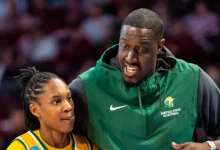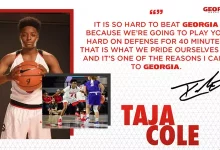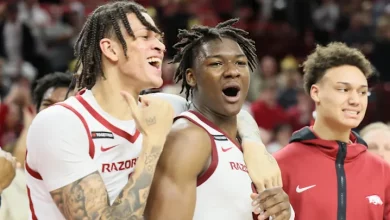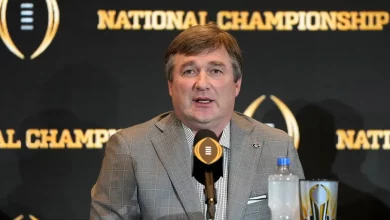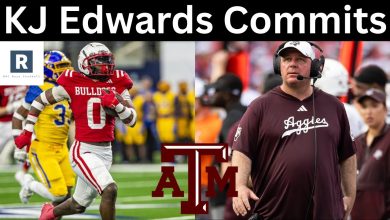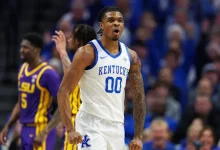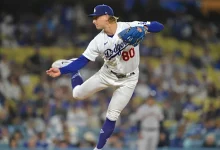The Buss family has agreed to sell a majority stake in the Los Angeles Lakers to Mark Walter, CEO of TWG Global, according to sources.
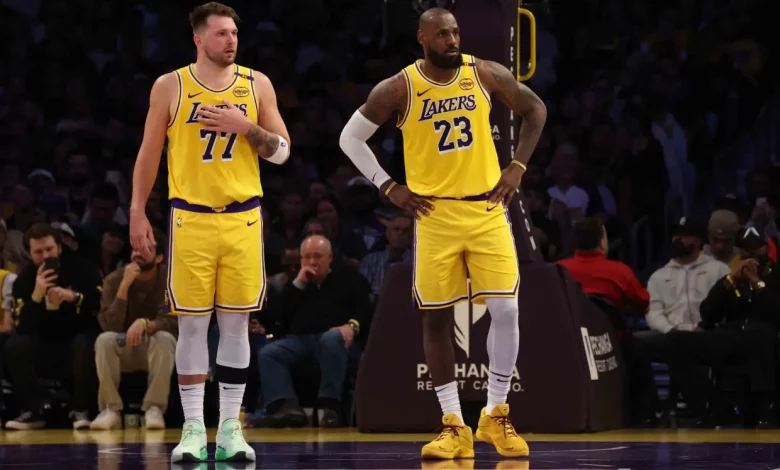
The Los Angeles Lakers, one of the most storied and iconic franchises in NBA history, are entering a significant new chapter. According to sources, the Buss family has reached an agreement to sell a majority stake in the team to Mark Walter, the well-known executive director of diversified holding company TWG Global. This development marks a pivotal moment in the franchise’s history, blending a storied legacy with new ownership dynamics that could shape the Lakers’ future for decades to come.
This comprehensive analysis explores the background of this transaction, its significance within the context of NBA history, the profiles of the Buss family and Mark Walter, and the broader implications for the franchise, the league, and sports ownership.
Background: The Buss Family and the Lakers’ Legacy
The Buss family has been synonymous with the Los Angeles Lakers for over four decades. The franchise was purchased by Dr. Jerry Buss in 1979, transforming the Lakers into a global sports and entertainment powerhouse. Under his leadership, the team secured 10 NBA championships, cultivated a roster of legendary players like Magic Johnson, Kareem Abdul-Jabbar, Shaquille O’Neal, and Kobe Bryant, and became a cultural icon.
Following Jerry Buss’s death in 2013, ownership transitioned to his children, notably Jeanie Buss, who assumed control of the franchise. Under her stewardship, the Lakers have continued their legacy of success, winning additional titles and maintaining their position as one of the most valuable and recognizable sports franchises worldwide.
The Buss family’s stewardship has been marked by stability and a deep connection to Lakers’ tradition. However, as the franchise’s valuation soared—recent estimates placing it at around $5-6 billion—interest in ownership stakes and potential sales grew among high-net-worth individuals and investment groups.
The Decision to Sell: Motivations and Market Dynamics
Sources indicate that the Buss family’s decision to sell a majority stake stems from multiple factors:
- Financial Opportunity: The Lakers’ valuation has skyrocketed due to global branding, lucrative media rights deals, and the NBA’s expanding international audience. Selling a stake offers significant financial gains and liquidity.
- Legacy Preservation: While the Buss family has maintained ownership since 1979, the evolving landscape of sports ownership—characterized by large-scale investments, media rights, and commercial partnerships—offers a chance for new strategies and growth.
- Market Trends: The sports industry has seen record-breaking franchise sales, with the historic $10 billion valuation of the Los Angeles Lakers (if reported or projected) setting a new benchmark. This environment incentivizes owners to capitalize on their assets.
- Strategic Partnerships: Bringing in new investors like Mark Walter could provide additional resources, expertise, and strategic vision to enhance the franchise’s global reach and operational efficiency.
Who Is Mark Walter? A Profile
Mark Walter is a prominent figure in the world of business and sports ownership. As the executive chairman of TWG Global, a diversified holding company, Walter has built a reputation for strategic investments across various sectors, including finance, real estate, and sports.
Key Highlights of Mark Walter’s Career:
- Crescent Real Estate Equities: Walter was a founding partner of Crescent Real Estate Equities, which became one of the largest real estate investment trusts (REITs) before being acquired by Blackstone.
- Investments in Sports: Walter is perhaps best known as a principal owner of the Los Angeles Dodgers, having purchased the franchise in 2012 through his ownership group, which has seen significant success both on and off the field, including multiple World Series titles.
- Business Acumen: His leadership style emphasizes strategic growth, leveraging media and branding to expand franchise value and fan engagement.
- Philanthropy and Community Engagement: Walter’s involvement in community initiatives and philanthropic efforts underscores a commitment to social responsibility.
TWG Global is a diversified holding company involved in various sectors, including infrastructure, finance, and technology, with a focus on strategic investments and long-term growth.
The Terms of the Deal and What It Means for the Lakers
While specific financial details of the transaction have yet to be publicly disclosed, industry insiders suggest that the deal involves the sale of a majority stake—potentially 60-80%—in the franchise. This would mark one of the most significant ownership changes in NBA history.
Implications include:
- Ownership Structure: The Buss family, likely including Jeanie Buss, will retain a significant minority stake or advisory role, ensuring continuity of the franchise’s legacy and culture.
- Operational Control: Mark Walter and his investment group will assume key decision-making responsibilities, potentially bringing new strategic initiatives, marketing strategies, and technological innovations.
- Financial Power: The infusion of capital and strategic resources could accelerate the Lakers’ plans for global expansion, digital content development, and fan engagement.
Broader Significance: NBA and Sports Industry Impacts
1. Setting a Valuation Benchmark
If the Lakers’ valuation indeed approaches or exceeds $5-6 billion, this transaction would set a new standard for franchise valuations across the NBA and globally. It reflects the league’s increasing profitability driven by media rights, merchandise, and international markets.
2. A Shift Toward Investment-Driven Ownership
Mark Walter’s involvement exemplifies a broader trend where sports franchises attract sophisticated investors and businesspeople rather than traditional sports owners. This shift could lead to more strategic, business-oriented management, emphasizing long-term growth and innovation.
3. Globalization of the Lakers Brand
With Walter’s global network and the franchise’s international appeal, this ownership change could accelerate the Lakers’ efforts to expand their global footprint—through international tours, content distribution, and immersive fan experiences.
4. Potential for Innovation and Modernization
New ownership often brings fresh perspectives. Walter’s track record suggests a focus on leveraging technology, data analytics, and multimedia platforms to enhance team performance and fan engagement.
5. Impact on NBA Competitiveness and Market Dynamics
The influx of significant capital and strategic planning can influence league competitiveness, attracting top players and fostering a more dynamic environment. It also underscores the NBA’s rising global prominence and financial strength.
Challenges and Considerations
While this ownership transition is exciting, it comes with potential hurdles:
- Maintaining Franchise Legacy: The Lakers’ rich history and cultural significance require careful stewardship to honor their traditions amid modernization efforts.
- Balancing Commercial and Competitive Priorities: New owners may prioritize financial returns, which could influence team-building strategies and player management.
- Fan Expectations: Lakers fans have high expectations for on-court success and community engagement, and ownership changes must align with these sentiments.
- Regulatory and League Approval: The NBA’s ownership approval process involves thorough vetting to ensure compliance with league policies and standards.
The Future Outlook: What Comes Next?
The sale of a majority stake to Mark Walter signals a new era for the Lakers—one characterized by strategic growth, global outreach, and innovative leadership. Possible future developments include:
- Enhanced Digital Presence: Expanding multimedia content, virtual fan experiences, and international streaming partnerships.
- Global Fan Engagement: Targeted outreach in emerging markets like Asia, Africa, and Europe.
- Investment in Player Development: Leveraging new resources to attract and retain top talent.
- Community and Cultural Initiatives: Continuing the Lakers’ tradition of community involvement, philanthropy, and social impact.
- Potential for Further Investment: The deal could pave the way for future minority investments or partnerships, creating a more diversified ownership structure.
Conclusion
The Buss family’s decision to sell a majority stake in the Los Angeles Lakers to Mark Walter marks a landmark moment in sports history. It reflects the evolving nature of franchise ownership—where strategic investments, global branding, and technological innovation intersect to shape the future of professional sports.
For the Lakers, this transition promises a blend of legacy preservation and forward-looking growth. For NBA fans and stakeholders worldwide, it signifies the continued rise of the league as a premier entertainment and business enterprise. And for Mark Walter, it offers a unique opportunity to steward one of the most iconic franchises in sports, further cementing his legacy as a visionary sports owner and investor.
As this new chapter unfolds, all eyes will be on Los Angeles to see how the Lakers leverage this ownership change to maintain their status as NBA royalty and continue their pursuit of excellence both on and off the court.
Would you like me to include specific quotes, additional background on the Buss family or Mark Walter, or analysis of potential strategic initiatives?

